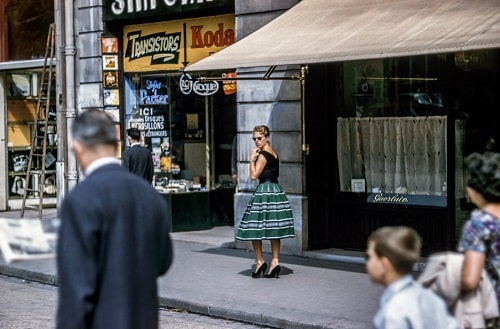James Earl Jones, a titan of stage and screen, has left an indelible mark on the world of entertainment with his distinctive voice and formidable presence. Known for his deep, resonant voice that could command the attention of audiences worldwide, Jones’s career spanned over several decades, featuring roles that have become truly iconic. From the menacing tones of Darth Vader to the wise Mufasa in The Lion King, his contributions have been both versatile and profound.
Reflecting on his life and career not only brings nostalgia but also highlights the impact he has had across diverse genres and generations. His ability to infuse each character with depth and authenticity made him a beloved figure in the arts, and most households. As we look back and remember, it’s clear that James Earl Jones’s legacy is one of unparalleled excellence and enduring influence in the realm of performing arts.
Overview of James Earl Jones’s Career
James Earl Jones’s career spanned several decades, during which his resonant voice and compelling performances have left an iconic mark on the world of entertainment. From stage to screen, his roles have not only defined cinematic history but also showcased his unique ability to bring complex characters to life.
Early Life and Career Beginnings
Born on January 17, 1931, in Arkabutla, Mississippi, James Earl Jones was introduced to a life of change and challenge early on. Raised predominantly by his grandparents, he moved to Michigan, where he later overcame a stutter that had deeply affected his communication. His journey into acting began at the University of Michigan, where he initially studied medicine but soon switched to drama after discovering his passion for the stage. His early career was marked by a string of stage roles, including a Broadway debut in 1957 that would set the stage for his future successes. In 1964, he earned critical acclaim for his performance in “The Great White Hope,” showcasing his commanding presence and depth of talent, which hinted at the bright career that lay ahead.
Rise to Prominence
The 1970s marked a major turning point in Jones’s career as he transitioned from successful stage actor to a distinguished performer in film and television. His portrayal of boxer Jack Johnson in the film adaptation of “The Great White Hope” in 1970 earned him an Academy Award nomination, catapulting him into the public eye. Perhaps best known for his voice role as Darth Vader in the “Star Wars” series, starting in 1977, Jones brought a menacing yet majestic voice to the iconic villain, solidifying his place in pop culture history. Concurrently, he continued to impress audiences with his versatility, appearing in films such as “Dr. Strangelove” and on television in roots-inspired miniseries and theater productions. This period not only heightened his fame but also established him as a versatile actor capable of performing across various media, each time delivering performances that resonated deeply with audiences.
Iconic Roles and Performances
Jones’s illustrious career is punctuated by a series of unforgettable roles that have not only defined his legacy but have also left an indelible mark on the world of entertainment. His powerful performances extend from the ominous tones of a galactic villain to the wise words of a regal lion.
Voice of Darth Vader
Perhaps the most pivotal role that solidified James Earl Jones’s status as an iconic voice actor is his portrayal of Darth Vader in the “Star Wars” saga. Although physically portrayed by David Prowse and later by other actors, it is Jones’s menacing voice that breathed life into the character, making Darth Vader one of the most recognizable and feared characters in cinematic history. His deep, resonant voice, combined with his masterful delivery of each line, contributed significantly to the chilling presence of the dark Sith lord. This role showcased Jones’s unique ability to transform a character through voice alone, influencing generations and becoming a cultural touchstone.
Role in “The Lion King”
In Disney’s “The Lion King,” Jones lent his voice to Mufasa, the wise and powerful King of the Pride Lands. His commanding voice helped shape Mufasa into a character that is both authoritative and endearingly paternal, imparting life lessons to his son Simba with both gravity and warmth. Jones’s portrayal made Mufasa a beloved character whose tragic demise evokes a deeply emotional response from audiences of all ages. This role not only highlighted his ability to convey nobility and wisdom through his voice but also cemented his status as an integral part of another major cultural phenomenon.
Theater Performances
Jones’s theater career was as distinguished as his work in film and television. On Broadway and beyond, he has delivered a range of compelling performances that have garnered critical acclaim and industry awards. Noteworthy among these is his portrayal of Jack Jefferson in “The Great White Hope,” a role that earned him both a Tony Award and later an Academy Award nomination for the film adaptation. His stage presence is characterized by a commanding essence and versatility, tackling complex characters and diverse narratives—from Shakespearean plays to contemporary dramas. Jones’s contribution to the theater not only reflects his deep commitment to the craft of acting but also his ability to leave a lasting impression on the audience through powerful live performances.
Awards and Achievements
Jones’s career was decorated with several prestigious awards that highlighted his exceptional contributions to film, television, and theater. These accolades not only honor his skill and dedication but also his impact on the arts and culture globally.
Tony Awards
Jones’s mastery of the stage has been recognized with multiple Tony Awards, a testament to his versatile acting prowess. He won his first Tony Award in 1969 for Best Actor in a Play for his powerful portrayal of boxer Jack Jefferson in “The Great White Hope.” This play, which vividly captures the challenges faced by an African American athlete in the early 20th century, also earned him widespread critical acclaim and established him as a formidable actor in theater. His portrayal was both powerful and emotionally resonant, shedding light on racial issues with great depth.
Jones’s relationship with the Tony Awards continued into the 1980s when he won his second Tony for his role in “Fences.” Playing the complex character of Troy Maxson, he brought to life the frustrations and dreams of a former baseball player navigating life in a world that seemed to offer everything and nothing at the same time. This performance further cemented his status as one of the greats on Broadway, showcasing his ability to delve into complex characters and make them extraordinarily human and relatable.
Honorary Academy Award
In recognition of his long and impactful career, James Earl Jones was awarded an Honorary Academy Award in 2011. This award was bestowed upon him not only for his myriad unforgettable performances but also for his overall contribution to the world of motion pictures. The Academy highlighted his “legacy of consistent excellence and uncommon versatility.” Not only was this a nod to his acting achievements, but it also celebrated his unique voice that has become iconic in its own right. From the menacing tones of Darth Vader to the wise and benevolent Mufasa, his vocal performances have transcended traditional acting and entered the realm of cultural phenomena. This Honorary Award placed James Earl Jones in a revered group of actors who have significantly shaped the landscape of global cinema, making it a fitting tribute to his legendary status.
Comparison with Contemporary Actors
James Earl Jones, with his profound impact and distinctive voice, stood as a singular figure in the world of acting, yet he invited comparison with his contemporaries who have also left remarkable legacies.
Influence and Legacy
James Earl Jones’s career is often compared to other legendary actors like Sir Laurence Olivier and Marlon Brando, who similarly transformed film and theater with their powerful performances. What sets Jones apart is the versatility of his voice and its iconic association with characters who span a broad range of emotional and moral spectrums, from the sinister Darth Vader to the wise Mufasa.
His influence extended beyond the screen. Like Brando, Jones used his platform to explore and highlight racial and social issues, though he chose the stage as his primary medium, particularly evident during his Broadway performances. Unlike Olivier, who was primarily known for his Shakespearean roles, Jones’s performances crossed into mainstream pop culture, making him a household name across generations. His portrayal of characters in groundbreaking roles paved the way for African American actors by showcasing a depth that had seldom been afforded to them in Hollywood’s earlier years.
Through the strength of his vocal performances and his commanding physical presence, Jones has helped to redefine the expectations for African American actors, much like Sidney Poitier did during his career. Their impact can be seen today in the roles and opportunities available to actors of color, reflecting Jones’s ongoing legacy in the industry.
Personal Impact and Activism
Jones’s influence extends far beyond the realms of film and theater, impacting both culture and community through his activism and personal engagements. His deep voice and commanding presence have made a mark not only on the entertainment industry but also in the arenas of social justice and educational advocacy.
Contributions Beyond Acting
Beyond his triumphant stage and screen performances, James Earl Jones has been a passionate advocate for various social issues throughout his life. His activism has primarily focused on improving literacy and education, particularly because he struggled with a severe stutter as a child. Understanding the power of voice, not only in performance but in personal expression, Jones has worked tirelessly to promote reading and literacy programs.
He has lent his influential voice to public service announcements and charity events that aim to provide better educational resources and opportunities for underserved communities. Moreover, his advocacy extends into the realms of racial equality and civil rights, having lived through and contributed to pivotal movements in American history that sought to improve the lives and rights of African Americans.
James Earl Jones’s role as an activist is perhaps less televised than his cinematic achievements, yet it is profoundly significant. His efforts to use his status to influence positive changes reflect his deep commitment to addressing some of society’s most pressing issues. Through these actions, Jones has demonstrated that his legacy is not confined to his artistic achievements but is also defined by his dedication to bettering humanity.
Remembering an acting legend
James Earl Jones’s career is a testament to the power of perseverance and talent. His journey from a shy boy with a stutter to a commanding presence on both stage and screen is nothing short of inspirational. His voice, once a source of personal struggle, has become his most powerful asset, leaving an indelible mark on the world of entertainment.
His roles have not only entertained but also challenged and inspired audiences worldwide. Whether as the voice of Darth Vader or the wise Mufasa, Jones has brought complexity and nuance to his characters, making each memorable in their own right.
As we reflect on his illustrious career and remember his, it’s clear that James Earl Jones’s influence extended far beyond the confines of theater and film. His legacy is marked by his incredible contributions to the arts and his relentless advocacy for literacy and civil rights. His life reminds us of the impact one individual can have, transcending the boundaries of their profession to touch the lives of many.


 RELATED POSTS
RELATED POSTS





0 Comments